
Public Administration celebrates its anniversary, professors reflect: '40 years young!'
Public Administration has been around for 40 years, and that deserves to be celebrated. Before the festivities begin, four figures from the Institute of Public Administration reflect on the past years, with one even looking back over the last 25 years. Speaking are: Bernard Steunenberg, Caelesta Braun, Kutsal Yesilkagit, and Bram Klievink.
Bernard Steunenberg: 'A wonderful programme that contributes to good and fair governance'
'It all started in the 1980s, a time of cutbacks and shifts – not so different from now. The idea back then was to create a programme involving three universities: Erasmus University Rotterdam, Delft University of Technology, and Leiden University; the current LDE. Thanks to additional funding from the ministry, this resulted in our joint programme alongside Rotterdam, as well as a ‘sketch of a public administration graduation track’ at Delft.
The launch of our programme in September 1984 was remarkably swift, especially by today’s standards. Public Administration was a new programme within the Faculty of Social Sciences, although the staff at the time still belonged to the Faculty of Law. This led to the first major relocation of our department.
The joint programme grew rapidly. By around 1990, we were the largest public administration programme in the Netherlands, offering courses on both the Leiden and Rotterdam campuses. Administratively and financially, this was quite a challenge, and gradually, Leiden and Rotterdam began to drift apart. Ultimately, this led to a formal separation in 1997, after which the programme in Leiden continued independently.'

'Specialisation proved to be a great success'
'In the 2000s, however, we faced new challenges. The reorganisation of the Faculty of Law led to the definitive transition of the department to the Faculty of Social Sciences. At the same time, we saw a decrease in the number of students and staff, which put considerable strain on the institute. Thanks to the introduction of the specialisation in Economics, Governance, and Management in 2011, the tide turned. This specialisation proved to be a great success and made us an instant market leader in the field of public administration.
This change also brought us to an important crossroads: where would our institute best thrive? After much discussion and advice, we decided in 2011 to move Public Administration to The Hague, a strategic choice that would later prove to be very significant. From September 2011, Public Administration officially became part of the new Faculty Campus The Hague, the precursor to the current Faculty of Governance and Global Affairs (FGGA).
This second move marked a much more complex phase, with the first location on the 12th floor of the Stichthage building above The Hague Central Station. Over a period of three years, the Bachelor in Public Administration gradually relocated to The Hague. In February 2012, the three master's programmes in public administration began in The Hague: the Master in Public Administration and two independent graduation tracks, Management of the Public Sector and Crisis and Security Management. In the meantime, we moved twice more within The Hague, first to Schouwburgstraat and then to Wijnhaven. Each of these was a milestone.
'An education with which we together shape and create the governance of the Netherlands'
Forty years young, Public Administration is a wonderful programme that contributes to good and fair governance in the Netherlands. A programme that appeals to a broad group of students who wish to delve into pressing societal problems and how we can solve them. A programme with which we together shape and create the governance of the Netherlands.'
See below for a slideshow featuring images of Public Administration throughout the years.
Bernard Steunenberg: 'The Institute of Public Administration is strong, thanks in part to a stable influx of students and a larger staff. Our evaluations by peers and external parties are excellent, and we conduct exciting research that ranges from digitalisation to sustainability, and from political-administrative conflicts to social welfare. Our collaboration with other faculties, such as Law, Social Sciences, and Engineering, is resulting in new programmes and research initiatives.'
Caelesta Braun: 'Contributing to a long and rich tradition'
'As a first-year student of Public Administration in 1997, I followed classes in the basement of the Pieter de la Court-building in Leiden from lecturers who are now my colleagues. I thought the study of public administration to be a bit tedious at first, as a wanna-be medical student. Yet, I finally became inspired by the subject, when I was exposed to crisis decision-making as a research assistant. I realized I could have a real impact on the lives of people via the study of Public Administration after all. I returned in 2016 to the Institute of Public Administration, which had moved to The Hague by that time, and became full professor in 2020. In the meantime, I went working for Dutch parliament and a consultancy firm to eventually pursue an academic career.'

'Brilliant colleagues'
'It is a true privilege to be a professor at the same institute where I started my studies. To join my brilliant colleagues in pursuing academic rigor and societal relevance in an internationally vibrant environment is both a joy and honour at the same time. I am inspired by teaching our students so they can help improve public governance and contribute to society. And I enjoy working with professionals in the public sector and beyond to share my expertise on public governance and civil society. I hope I can continue doing this for a long time to come!'

Kutsal Yesilkagit: 'Collaborations with practice have grown significantly'
'In 1995, I graduated from the Public Administration programme in Leiden, and since then, the field has never let me go. The strong focus within Leiden’s public administration on political-administrative relations has profoundly shaped me. The tension between political and administrative action, and how that balance influences the quality and legitimacy of public governance, has been and continues to be a central theme in my thinking and work.
Working within the institute is an inspiring experience, particularly due to the opportunity to approach current issues from a historical, theoretical, and increasingly interdisciplinary perspective. The interplay between teaching and research remains fascinating, especially now that the political context is so dynamic. Additionally, collaborations with practice have grown significantly: nearly all my Leiden colleagues work with professionals and organisations from the field on complex societal issues.'
'Reflecting on the foundations of our democratic rule of law'
'With the current political developments, such as the rise of populism and increasing polarisation, it is becoming increasingly important for us as Leiden public administration scholars to reflect on the foundations of our democratic rule of law. What do these developments mean for the functioning of public governance? How do we ensure that our governance forms continue to align with the fundamental values of democracy, equality before the law, and integrity? These questions will only become more relevant in the future, and I see it as our task to contribute to finding answers that strengthen governance in the Netherlands.'

Bram Klievink: 'Inspiring the next generations of academics and professionals'
'When joining the Institute a bit over five years ago, I found what I was hoping to find: an Institute building on a legacy of academic distinction, combined with academic entrepreneurship, both serving a commitment to advance both our knowledge and the subject we study.
Over the past four decades, our programme has been a beacon for aspiring public servants and other students seeking to contribute to solving public problems, equipping them with the knowledge, skills, and ethical foundation to navigate the complexities of governance today. We can take great pride in the numerous graduates who have gone on to shape policies, implement policy, lead organisations, and make a lasting impact.'
'This anniversary is a testament to the dedication of our current and past colleagues. While governments are under pressure to govern in an effective and responsive manner, addressing increasingly complex and cross-boundary societal challenges, we are further strengthening our leading contributions to our field, as well as continue to set and work on interdisciplinary research agendas.'
'Anniversary a testament to the dedication of our current and past colleagues'
'Looking to the future, I am confident that together we form a team – a community that is capable of navigatig the challenges we might face and committed to continue to push the boundaries of our academic field and inspiring next generations of academics and professionals.'
-
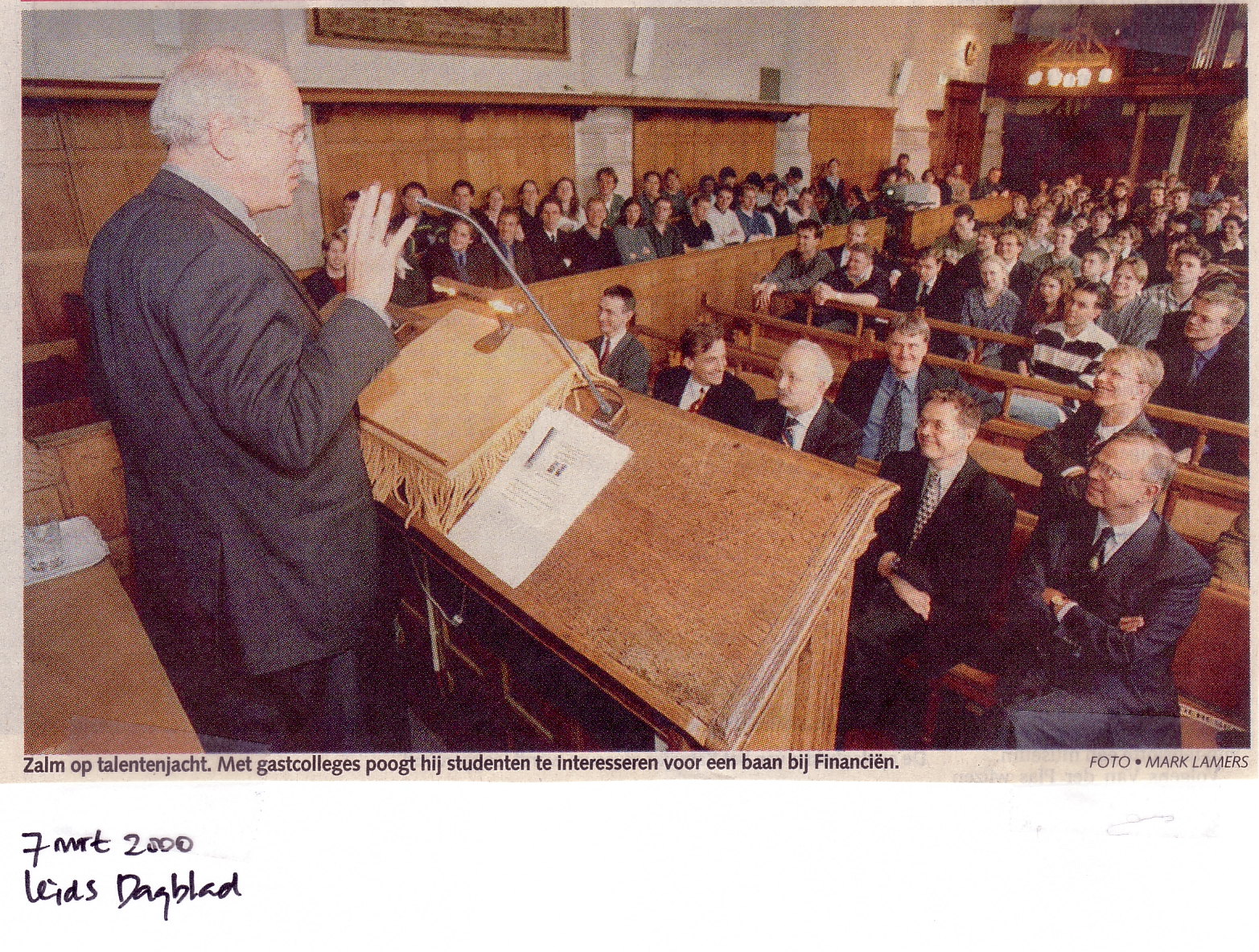
Gerrit Zalm visiting in 2000 -
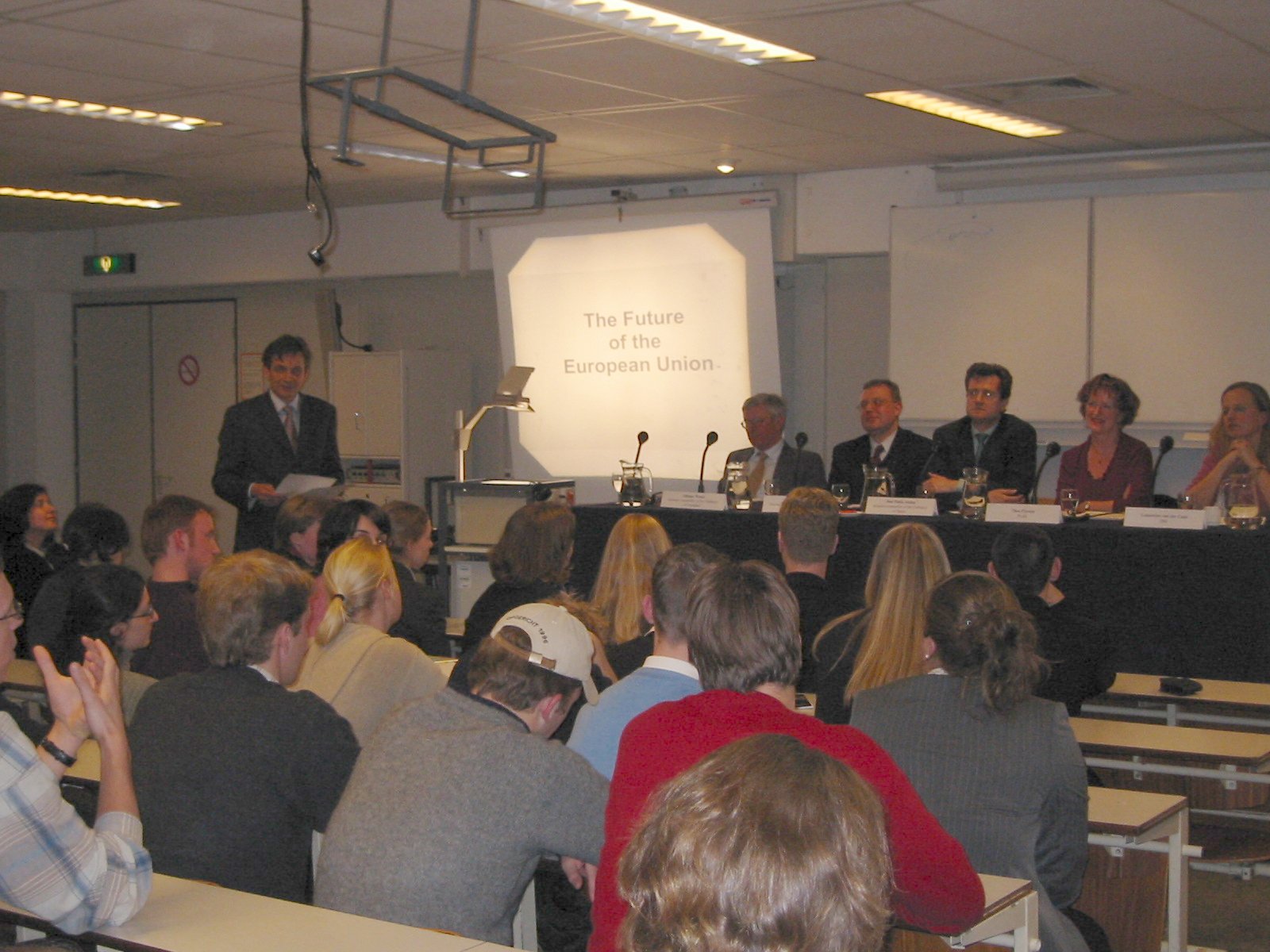
Debate 'The Future of the EU' in 2003 -
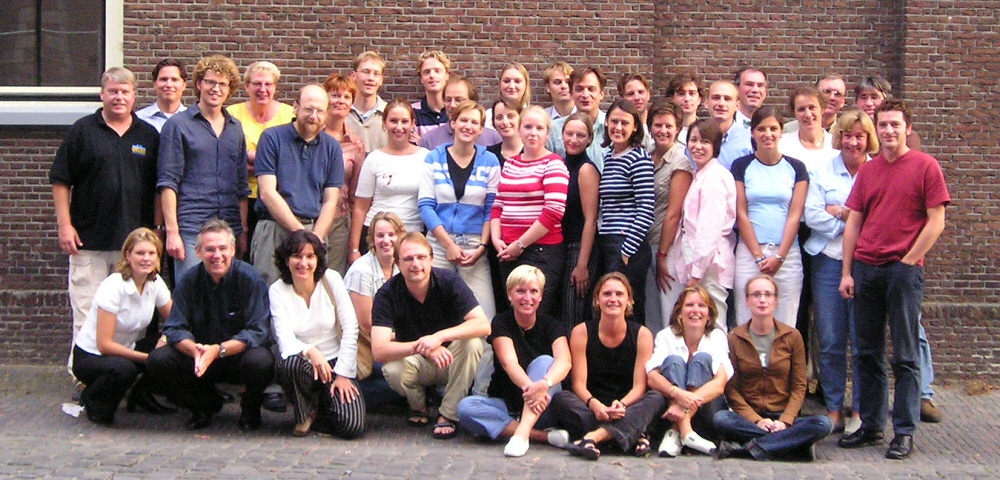
Staff photo in 2004 -
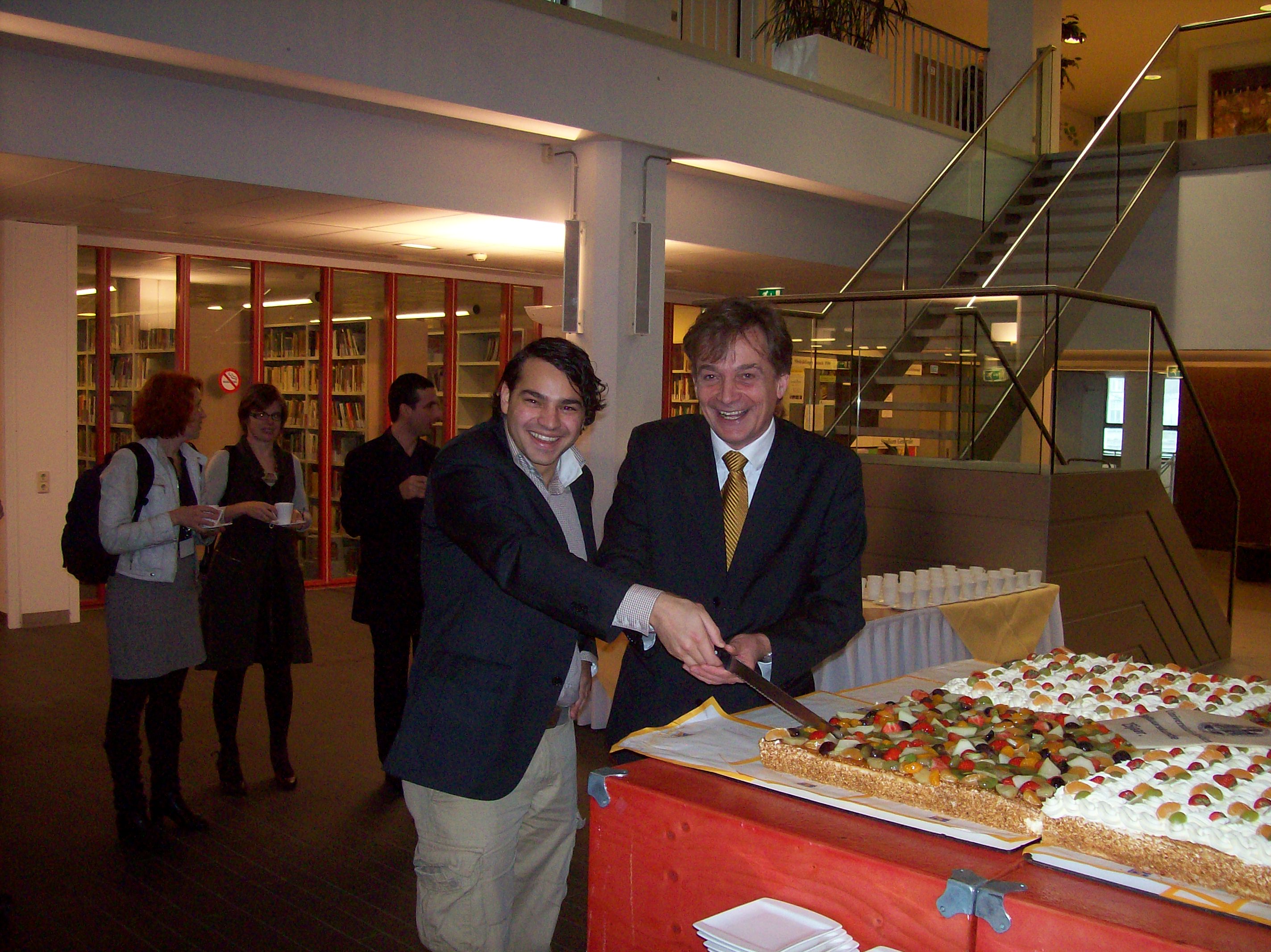
Lustrum celebration in 2009 -
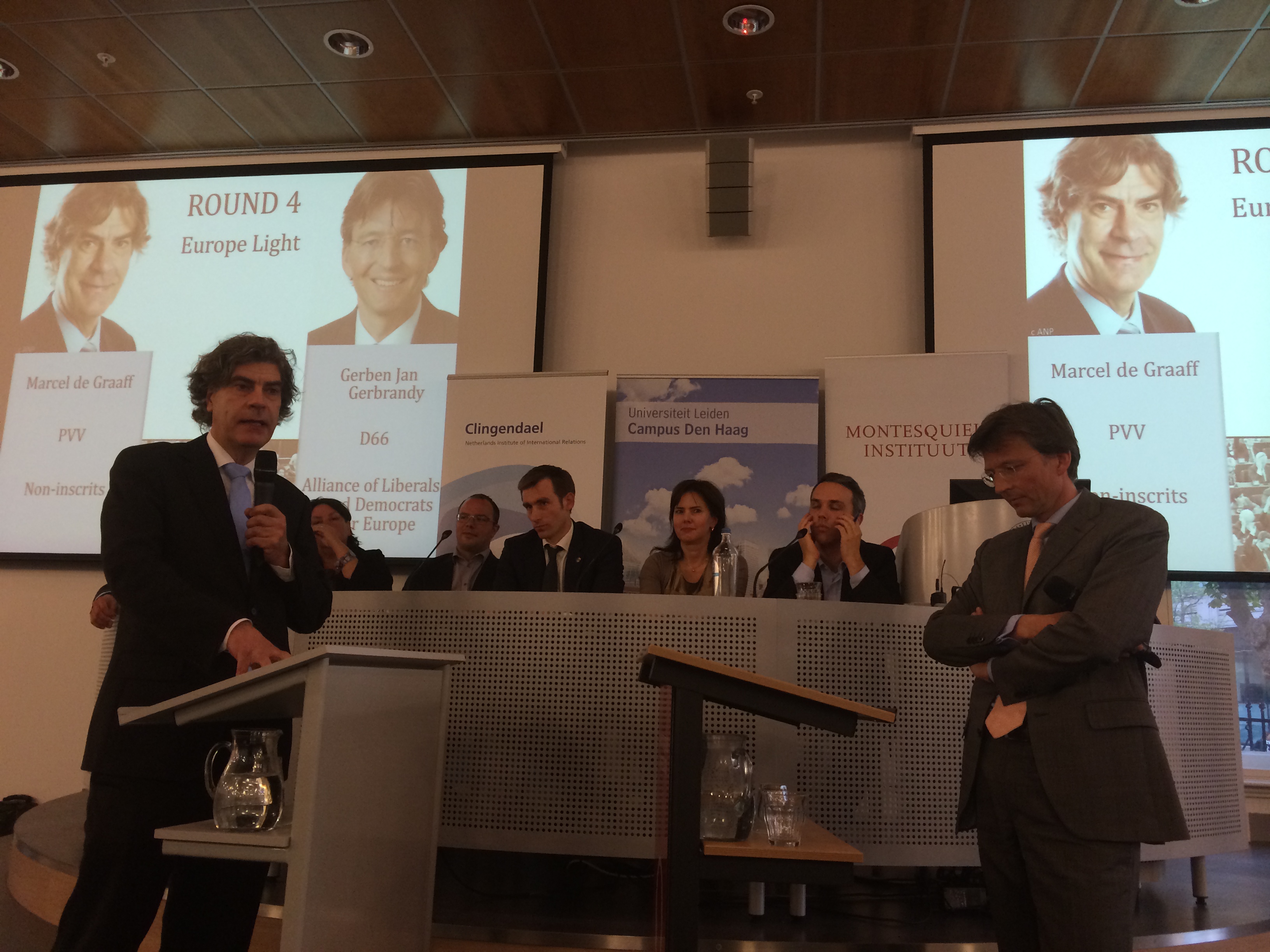
Election debate Marcel de Graaff - Gerben-Jan Gerbrandy in 2014 -

Federica Mogherini visiting in 2015 -

Nick Clegg visiting in 2018
